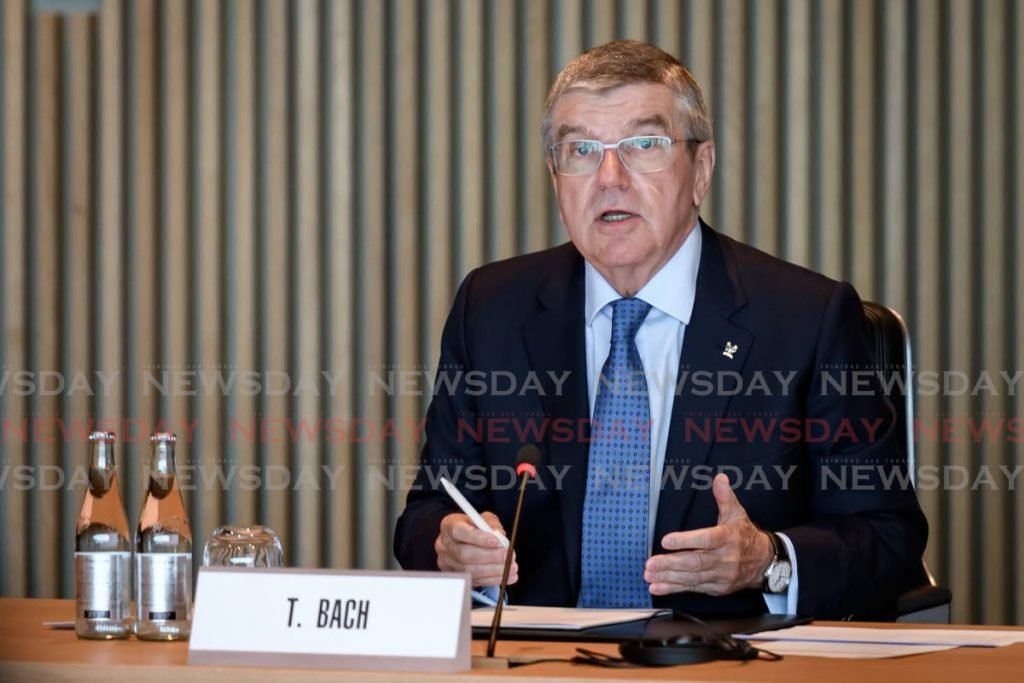ALTHOUGH the International Olympic Committee (IOC) has agreed to review Rule 50 of the Olympic Charter, the fraternity’s president Thomas Bach believes there is “no reason to rewrite history” amidst a renewed focus in athlete activism.
Bach made these remarks after a meeting of the IOC executive on Wednesday.
Rule 50 of the Charter reads, “No kind of demonstration or political, religious or racial propaganda is permitted in any Olympic sites, venues or other areas.”
Following the death of George Floyd on May 25, several high-profile athletes, activists and sport administrators have voiced their concerns on systemic racial discrimination, primarily within sport.
Some have shared their personal experiences of racial stigmatisation at sporting events while others have unearthed the many injustices handed down to athletes of colour throughout the years.
These issues have since become a hot but touchy debate amongst sporting officials globally. Recently, TT Olympic Committee (TTOC) president Brian Lewis chimed in by relating his experiences of racial discrimination while attending meetings abroad.
Lewis also highlighted the longevity and continuity of a lifetime ban imposed on two African American track athletes, Vince Matthews and Wayne Collett, by the IOC back in 1972 by then IOC president Avery Brundage.
After the pair sprinted to 400m gold and silver respectively at the 1972 Munich Olympics, they disregard the playing of the American national anthem during the medal ceremony protesting their anger at the state of race relations in the US.
Brundage viewed the pair’s behaviour as disrespectful and then banned them from the Olympic Games. Four years prior, Brundage made the same decision when Tommie Smith and John Carlos accepted their medals after the 200m finals, and raised their black-gloved fists into the air, saluting the struggles of black Americans.
In an article published to insidethegames.com on Thursday, Bach questioned the Asian Art Museum in San Francisco on their decision to remove a bust of Brundage “over concerns regarding his legacy, because of racist and anti-Semitic attitudes”.
Ironically, the museum owes its origin to a donation by Chicago millionaire Brundage, who was a major collector of Asian art. At the IOC executive board meeting on Wednesday, Bach addressed the actions of the museum.
“Every organisation has to take their own decision. On the one hand they have removed the bust of their founder, but on the other they keep the collections being donated by the founder and keep displaying them. This is in their responsibility. The role of Mr Brundage has been the focus of many studies and his history is pretty clear and has been evaluated. We see no reason to rewrite history in this moment,” he said.
Lewis, however, disagreed with Bach’s recent statements and said, “The reality of systemic racism and racial discrimination and inequalities in international sport is real. Nobody is asking the IOC to rewrite history. But it is reasonable to ask for the removal of rules written by a racist.”
Rule 50 was implemented into the Olympic Charter in 1975 but was constructed under Brundage’s IOC reign from 1952-1972.
Lewis also called for the reinstatement Matthews and Collett 48 years after they received a life ban for a podium protest. He even requested the pair be presented with the highest Olympic award – the Olympic Order – for their stance against injustice.
Additionally, the Caribbean National Olympic Committees (CANOC) president Lewis called for the IOC to embrace “uncomfortable conversations” as a progressive attempt at correcting the wrongs of past administrations.
Lewis’s reign at the helm of the TTOC is expected to conclude after the 2021 Tokyo Olympics. In his fight toward gender and racial equality, Lewis has also vouched for a female to replace him as TTOC head.

